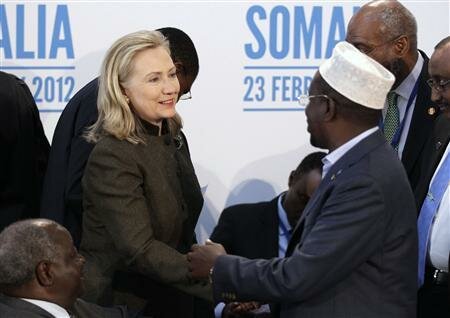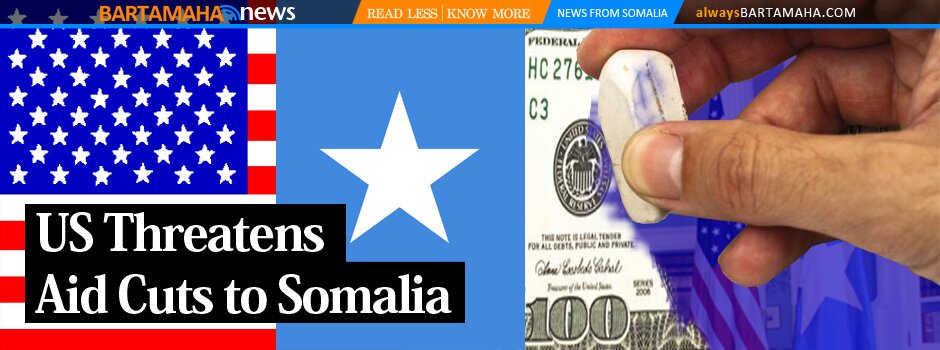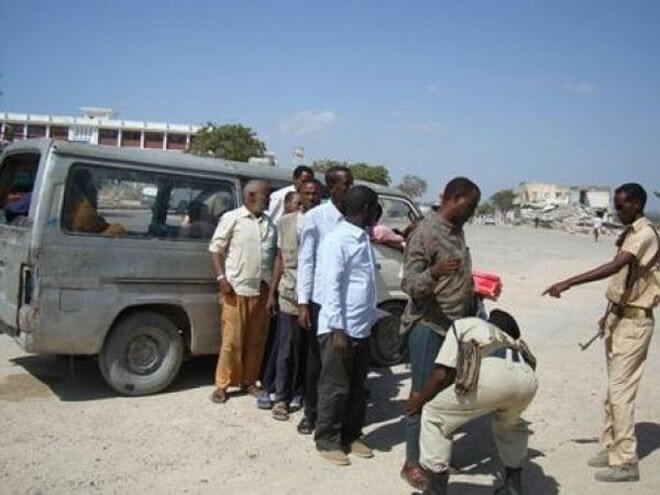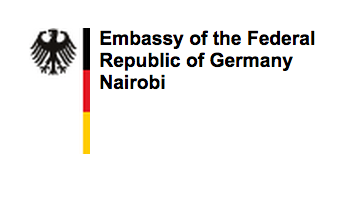U.S. threatens sanctions on Somali peace spoilers
 (Reuters) – Secretary of State Hillary Clinton on Thursday threatened sanctions on anyone blocking reforms intended to end Somalia’s “hopeless, bloody conflict” and counter militant and pirate groups seen as a growing menace to world security.
(Reuters) – Secretary of State Hillary Clinton on Thursday threatened sanctions on anyone blocking reforms intended to end Somalia’s “hopeless, bloody conflict” and counter militant and pirate groups seen as a growing menace to world security.
Addressing a conference aimed at energizing attempts to end more than 20 years of anarchy, Clinton also demanded greater efforts to cut funding for al Qaeda-linked al Shabaab militants fighting Somalia’s weak Transitional Federal Government (TFG).
Al Shabaab is the most powerful of an array of militias spawned by 20 years of conflict in Somalia, where armed groups have a history of wrecking attempted political settlements and perpetuating war, instability and famine.
“The position of the United States is straightforward: attempts to obstruct progress and maintain the broken status quo will not be tolerated,” Clinton told the one-day gathering in London of about 40 African, Arab and Western leaders and government ministers.
“We will encourage the international community to impose further sanctions, including travel bans and asset freezes, on people inside and outside the TFG who seek to undermine Somalia’s peace and security or to delay or even prevent the political transition.”
In a statement, al Shabaab dismissed the London meeting as part of a “concerted Crusade against the Muslims of Somalia” and pledged to fight on to establish Islamic rule.
President Sheikh Sharif Ahmed of Somalia’s TFG said Somalis wanted to shake off “horrendous memories of the past” but feared the gathering might be just another diplomatic talking shop.
“Today we are looking for security. We are scared,” he said. “We want to know what happened to the resolutions, all those hopes in the past which never saw the light of day and which remain as mere words on pieces of paper?”
Clinton and other speakers welcomed a February 17 agreement among Somali leaders on plans for a parliament and constituent assembly to replace the TFG when its mandate expires in August.
FRACTIOUS
Establishing a legitimate successor government seen as inclusive by the country’s fractious clans would be a vital step in restoring respect for formal politics among Somalis who tend to equate state power with corruption and brutality.
In a remark likely to stir attention in Mogadishu, Clinton raised the possibility of what she called “a more permanent diplomatic presence in Somalia” as security improves.
U.S. diplomacy is current managed from neighboring Kenya. The United States closed its embassy in Mogadishu in 1991, the year Somalia collapsed into feuding between warlords, clans and factions after president Mohamed Siad Barre was overthrown.
Up to a million people have since been killed, according to the International Committee of the Red Cross (ICRC).
The TFG got a boost on the eve of the conference when the U.N. Security Council voted to increase by nearly half an African Union peacekeeping force in Somalia, seeking to press home a military offensive against al Shabaab.
The resolution expanding the AMISOM force to 17,731 from 12,000 troops and police passed the council unanimously.
But some experts worry that the military campaign against al Shabaab may divert the energies of the TFG, a body widely seen as corrupt, badly managed and riddled with infighting.
Clinton said al Shabaab was weakening but pressure needed to be maintained. “Especially in south central Somalia, it has turned an already bad situation into a nightmare. It has dragged fathers and sons from their homes and forced them to fight in a hopeless, bloody conflict,” she said.
British Prime Minister David Cameron told the gathering that a failure to end Somalia’s chaos would endanger international security, arguing that Somalia’s problems “affect us all.”
“In a country where there is no hope, chaos, violence and terrorism thrive. Pirates are disrupting vital trade routes and kidnapping tourists,” he said.
RANSOMS
Cameron announced several aid and development initiatives including a proposal to set up an international taskforce on ransoms, the main tactic used by Somali pirates who seize ships and their crews in the Indian Ocean and Gulf of Aden.
The meeting’s UK organizers tried to temper expectations, explaining that the aim of the event is to galvanize policymakers’ attention on Somalia to coordinate a sometimes disjointed international response better.
Nevertheless, Somalis who have known little but war, famine and blunder-prone international intervention for decades cannot help but hope for something that will improve their lives.
“The expectations that Somalis have are huge,” Mogadishu-based civic activist Jabril Ibrahim Abdulle of Somalia’s Center for Research and Dialogue think tank told Reuters.
“You have so many external factors driving different agendas that it would be a success to have a unified stance. Above all we need implementation of what’s agreed, as disappointed hopes will only bring more radicalization and hostility.”
___
Reuters
Comments
comments
 Calendar
Calendar






































